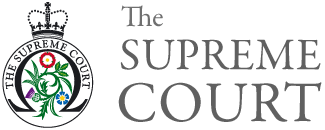Fees and costs
The Supreme Court plays an important role in the development of the common law by selecting only cases that include an element of wider public interest.
HM Treasury recognises that the Supreme Court’s rulings benefit not only the immediate parties to the case, but also everyone who uses the United Kingdom’s civil justice system.
As a result, the costs of dealing with civil cases in the Supreme Court are shared across users of the Supreme Court and all litigants bringing civil cases in England and Wales and Northern Ireland. The Scottish government will also make a contribution.
Details of fees payable are available in Practice Direction 7.
Changes to fees from 1st April 2024
Following on from the "Reforming Fees in the United Kingdom Supreme Court" consultation, the Supreme Court Fees Order 2024 came into force on 1 April 2024. The Supreme Court Fees Order 2024 replaced the Supreme Court Fees Order 2009.
The Supreme Court's fees had remained in large part unchanged since they were first set in 2009. Because of inflation, this meant that the value of the fees had fallen in real terms. The Supreme Court Fees Order 2024 uplifted the Supreme Court's fees in line with inflation, to the value at which they were originally set.
The changes in fees do not affect all fees for all cases:
- Where the application for permission to appeal was filed before 1 April 2024, the fee for filing the statement of facts and issues and appendix of essential documents will remain the old fee.
- Where a claim for costs was filed before 1 April 2024, the fee when the parties receive an order or confirmation of certification by the Registrar of the amount of assessed costs will remain the old fee.
The Supreme Court Fees Order 2024 maintains the Help with Fees regime for litigants on low income, those in receipt of certain benefits, and those who have little to no savings. You can read more about the Help with Fees regime, and how to apply, here.
